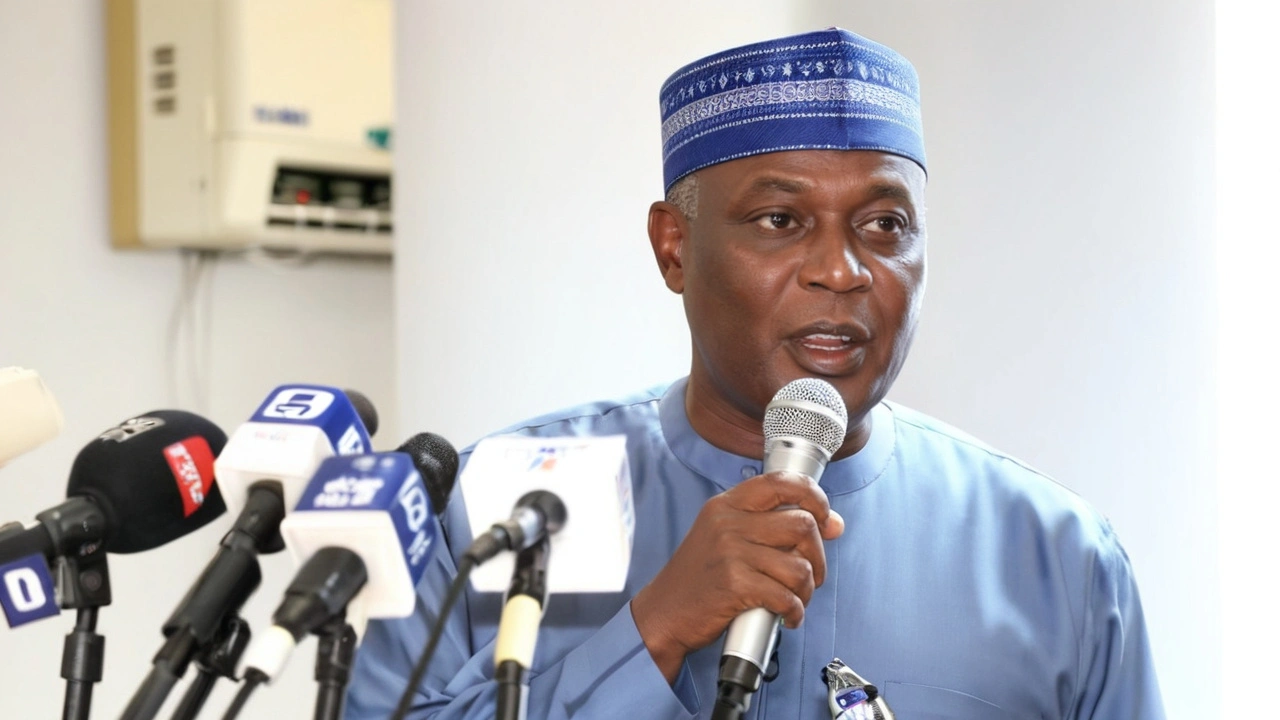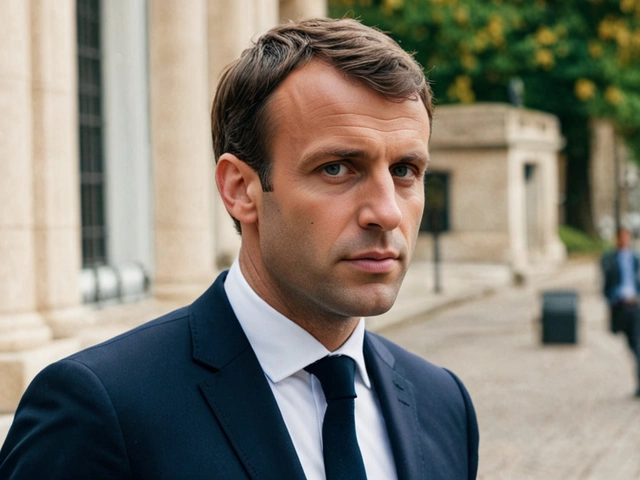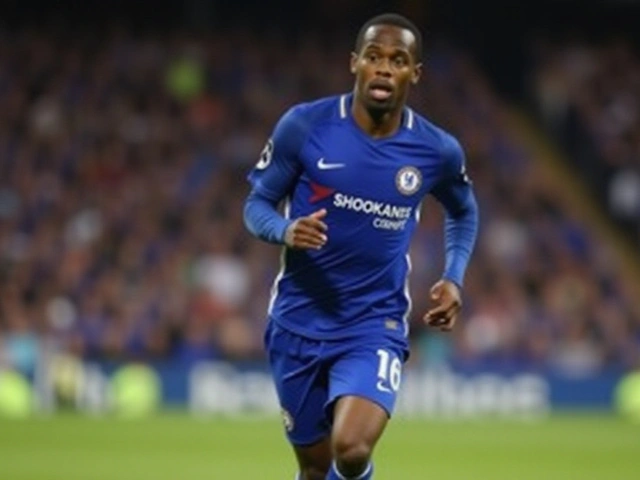Atiku Abubakar Appeals to International Bodies
In a dramatic turn of events, former Nigerian Vice President Atiku Abubakar has charged the sitting President, Bola Tinubu, with grave human rights abuses. Atiku has approached both the United Nations (UN) and the International Criminal Court (ICC), accusing Tinubu's administration of severe misconduct amid the ongoing hunger protests. This bold move has stirred both national and international attention, highlighting Nigeria's current turbulent state.
Protests Marked by Violence
These demonstrations, which commenced on August 1, 2024, have not only spotlighted economic discontent but have tragically turned violent. Peaceful protests, which include demonstrators from various backgrounds, have frequently faced harsh retaliation from security forces. In particular, the incidence of live ammunition being fired, the deployment of tear gas, and other aggressive tactics have been reported. Among the victims of these altercations is a teenage boy from Kubwa, Abuja, whose death has fueled public outrage. Such instances have showcased the extreme measures employed by security agencies like the armed police and DSS operatives.
Targeting Journalists and Media Personnel
In addition to the harassment of protesters, journalists have found themselves caught in the crossfire. Reports have emerged detailing terrifying incidents where media personnel have been shot at, chased, and even detained. This not only endangers their lives but also stifles the free press, marking a troubling retreat from democratic norms. The targeting of individuals chronicling the protests raises serious questions about the freedom of speech and the state of journalism in Nigeria.
Nationwide Protests
The wave of protests is not isolated to a single region but has rippled across the country, encompassing states such as Kano, Calabar, Cross River State, Yobe, Delta, Jigawa, Kaduna, Adamawa, Lagos, and Rivers. This extensive spread underscores the widespread dissatisfaction and desperation among the populace. Each state has witnessed its share of violent clashes, making it evident that the unrest is a national crisis.
International Human Rights Organizations React
Human rights organizations like Amnesty International and the Human Rights Writers Association (HURIWA) have voiced their concerns unequivocally. They have openly condemned the excessive and disproportionate use of force by Nigerian security agencies. These groups continue to pressure the government to adopt measures that respect citizens’ rights to peacefully protest and seek redress without fear of violent retaliation.
Atiku Abubakar's Condemnation
Former Vice President Atiku Abubakar has not held back his condemnation. Describing the actions of the security forces as 'heinous' and reminiscent of earlier eras marred by military dictatorship, he insists on the necessity for the government to foster a safe and conducive environment for peaceful demonstrations. Atiku’s statements reflect a deep concern for the direction in which Nigeria's democracy is heading.
Call for International Scrutiny and Accountability
Atiku has appealed to the global community to keep a vigilant eye on Nigeria, urging international bodies to hold the nation’s leaders accountable. He underscores that it is imperative for the Nigerian administration to be scrutinized and judged for its actions during these troubled times. The call for justice extends not only to the leaders but also to those who exploit the turmoil for looting and property destruction.
President Tinubu’s Upcoming Address
Amidst increasing pressure, President Tinubu has announced that he will speak to the nation on Sunday, August 4, 2024. This address comes at a crucial juncture, with demands from religious leaders, opposition factions, and ordinary citizens for the government to tackle the dire economic conditions and hunger that triggered the protests in the first place. The President's response could very well determine the future course of these national upheavals.
Economic Hardships as a Catalyst
The root causes of the protests stem from severe economic hardships plaguing Nigeria. Citizens have found themselves pushed to the brink, with skyrocketing food prices, rampant unemployment, and diminishing economic opportunities. This environment of deprivation has inevitably led to a social explosion, with citizens demanding immediate and impactful solutions from their leaders.
Personal Accounts from Protesters
Listening to the stories of those on the ground brings a human element to this crisis. Ordinary Nigerians recount their experiences of being unable to afford basic meals, being forced to skip essential medicines due to lack of funds, and dealing with the constant uncertainty of unemployment. These first-hand accounts highlight the desperate reality facing many, making their cries for help all the more urgent and heart-wrenching.
Urgent Need for Reform
As Nigeria faces this crossroads, the need for comprehensive and urgent reform becomes glaringly obvious. Economic policies need reevaluation and adjustment to ensure they cater to the needs of the most vulnerable. Social safety nets must be reinforced to protect citizens from the harshest effects of economic downturns. Moreover, governance must pivot towards transparency and accountability, allowing citizens to trust that their leaders are acting in their best interests.
The Road Ahead
The coming days will be crucial in determining how this chapter of Nigeria's history unfolds. The international community will watch closely, scrutinizing both the actions of Nigerian leaders and the response of global institutions like the UN and ICC. The hope is that out of this tumult, a stronger, more resilient Nigeria will emerge, one that respects and upholds the fundamental rights of its citizens.
The story of Nigeria's hunger protests is far from over. It encapsulates not just a nation's struggle for food and security but a profound fight for dignity, human rights, and democratic values. As events develop, the eyes of the world remain fixated on Nigeria, awaiting a resolution that honors the sacrifices and voices of its people.






6 Comments
Elizabeth Price
August 4, 2024 AT 19:37 PMSo let me get this right: Atiku, who was VP under Obasanjo-when Nigeria was *also* burning-and now he’s playing the moral crusader? Please. He’s just mad he lost. The UN? The ICC? You think they care about Nigerian politics unless there’s oil involved? This is performative outrage dressed up as justice. And don’t even get me started on Tinubu-yes, he’s terrible-but Atiku’s record is just as bloody. Double standards? More like triple standards, with extra hypocrisy on top.
Brian Walko
August 5, 2024 AT 04:47 AMThe gravity of this situation cannot be overstated. The use of lethal force against peaceful demonstrators, particularly the killing of a teenager, represents a profound violation of fundamental human rights. The international community has a moral obligation to respond with clarity and consequence. The UN and ICC must act not as political arbiters, but as guardians of universal dignity. Furthermore, the targeting of journalists is not merely an affront to press freedom-it is an assault on truth itself. Nigeria stands at a precipice; the world must not look away.
Derrek Wortham
August 5, 2024 AT 19:38 PMThis isn’t about hunger. This is about power. Atiku’s been whispering in the ears of Western diplomats for months. He’s got a private jet, a mansion in London, and now he’s crying foul because Tinubu won? Meanwhile, the real villains are the same old elites-whether it’s Atiku or Tinubu-who’ve been looting this country for decades. The protesters? They’re pawns. The media? Complicit. The ICC? A theater. And you know what’s worse? The fact that people actually believe this is about justice. It’s not. It’s a power play wrapped in a flag. The only thing that’ll change Nigeria is a revolution-no petitions, no appeals. Just fire.
Aryan Sharma
August 7, 2024 AT 08:10 AMWait wait wait. You think this is real? The UN? ICC? Nah. This is all CIA and MI6 playing puppet master. They want to destabilize Nigeria because of the oil. Atiku is their guy. Tinubu is too independent. That’s why the protests started-fake hunger, fake deaths, all staged. The boy in Kubwa? Probably paid actor. The journalists shot? Maybe they were spies. You think the DSS doesn’t know how to handle protesters? They’ve been doing it since 1980s. This whole thing is a psyop. And the elites in America and UK are laughing. They’ve done this before-in Venezuela, in Sudan. Same script. Same actors. Different country.
Devendra Singh
August 8, 2024 AT 03:46 AMThe irony is staggering. Atiku, a man who amassed wealth while serving in government that presided over the same systemic rot, now plays the moral arbiter? His appeal to the ICC is less about justice and more about elite salvage operations. Meanwhile, the real crisis-the collapse of social infrastructure, the decay of public education, the erosion of healthcare-is ignored because it’s not photogenic. The protesters aren’t heroes; they’re symptoms. The solution isn’t international intervention-it’s domestic institutional overhaul. But that requires accountability, not theatrics. And no, Atiku doesn’t have the moral authority to lead that change.
UMESH DEVADIGA
August 9, 2024 AT 03:40 AMI just cried reading about that boy in Kubwa. I mean, imagine being 14 and getting shot for asking for bread. My cousin in Kaduna told me his sister hasn’t eaten rice in three weeks. She’s 8. She just stares at the wall. And the government? They’re flying to Paris for meetings while people are eating leaves. Atiku’s right-this is dictatorship. But what’s the point of the ICC? They’ll take years. Meanwhile, people are dying. I just want someone to say: ‘We see you.’ That’s all. Just say you see us. And then do something. Anything. Please.